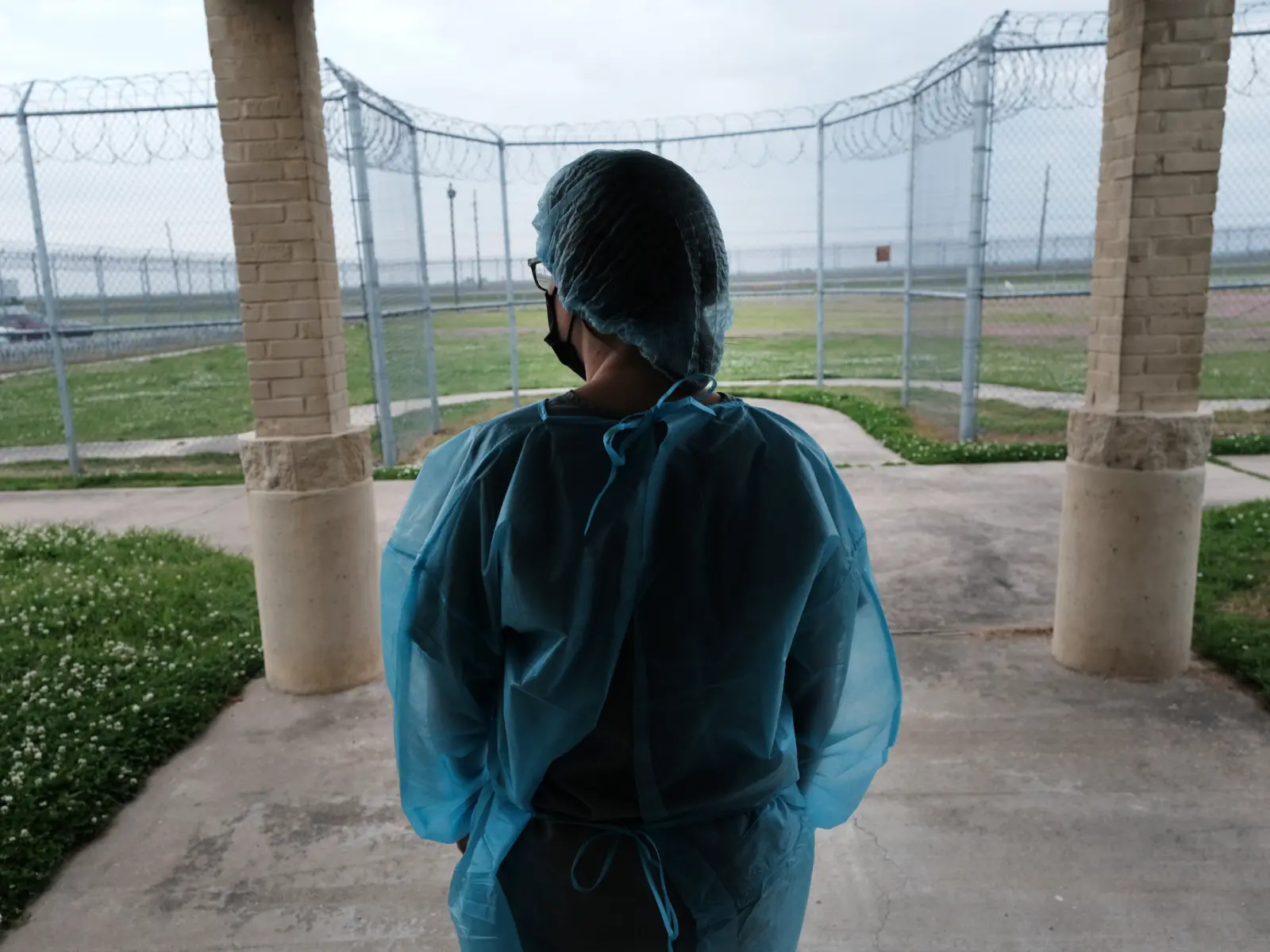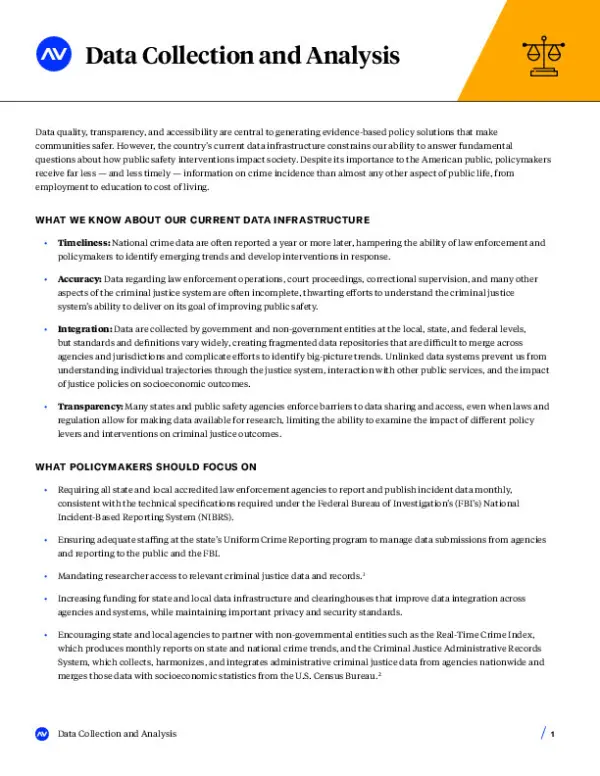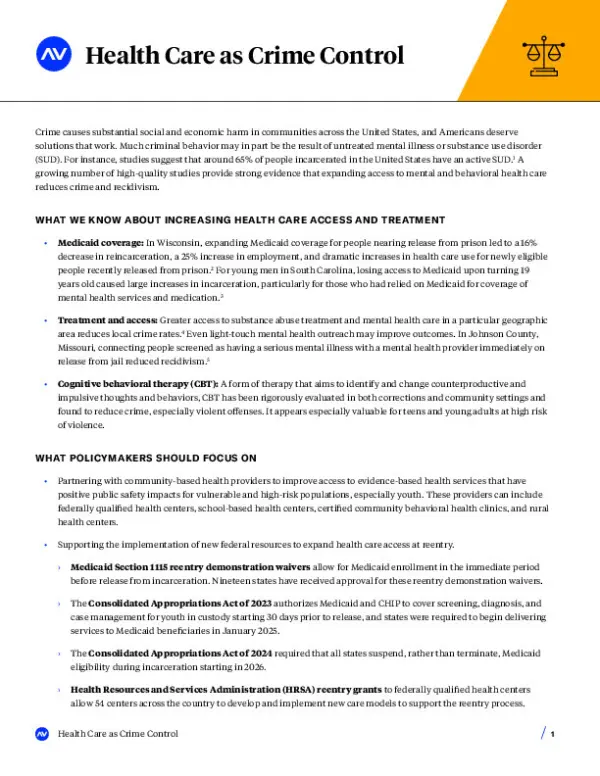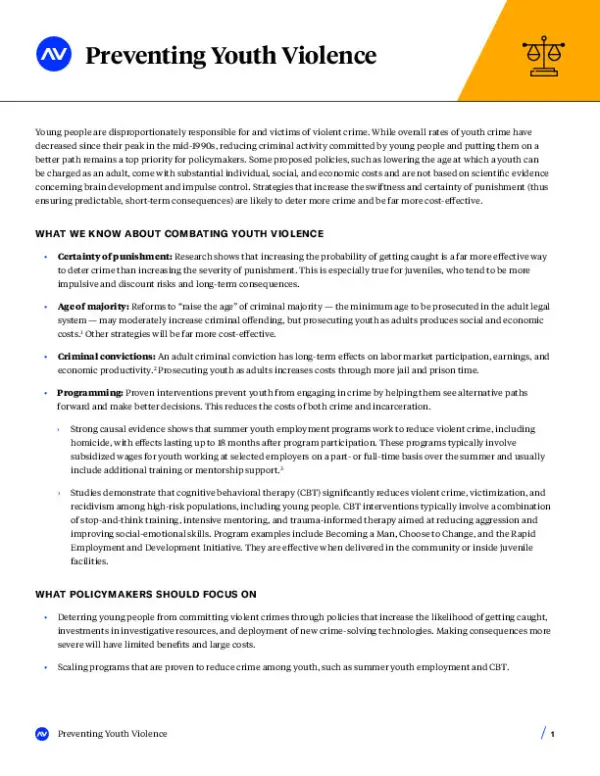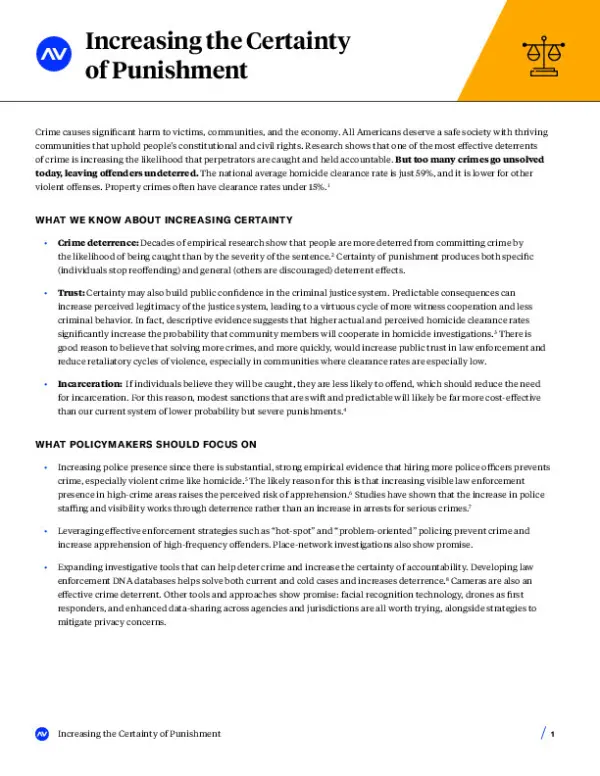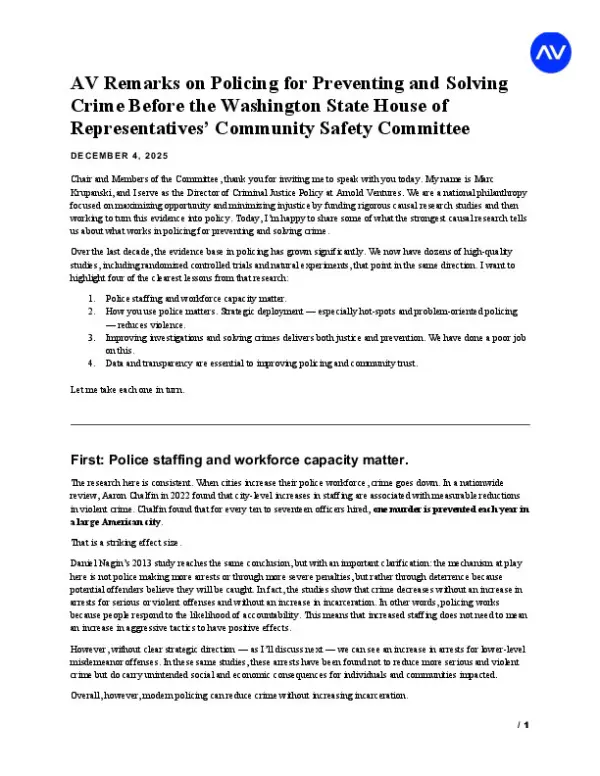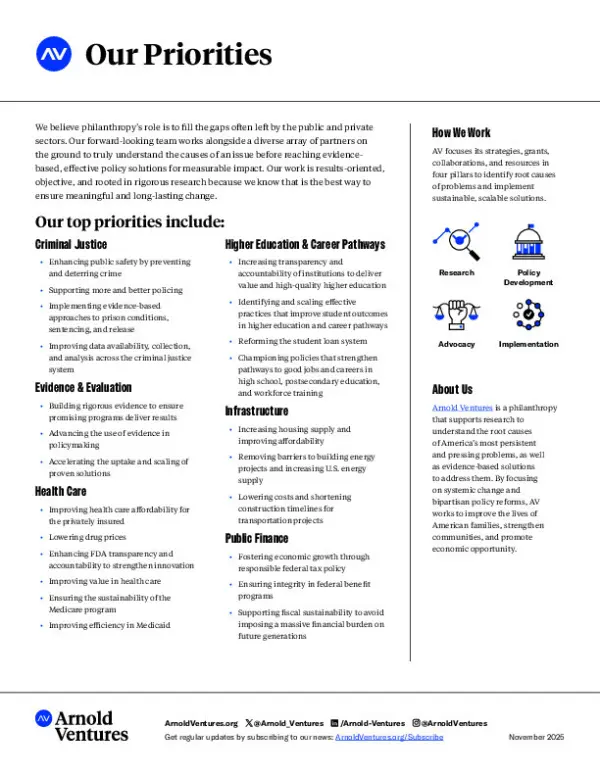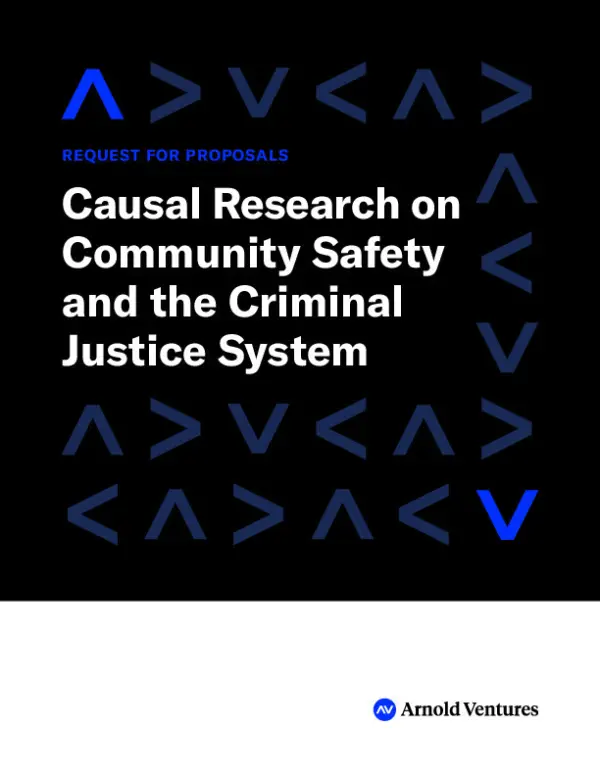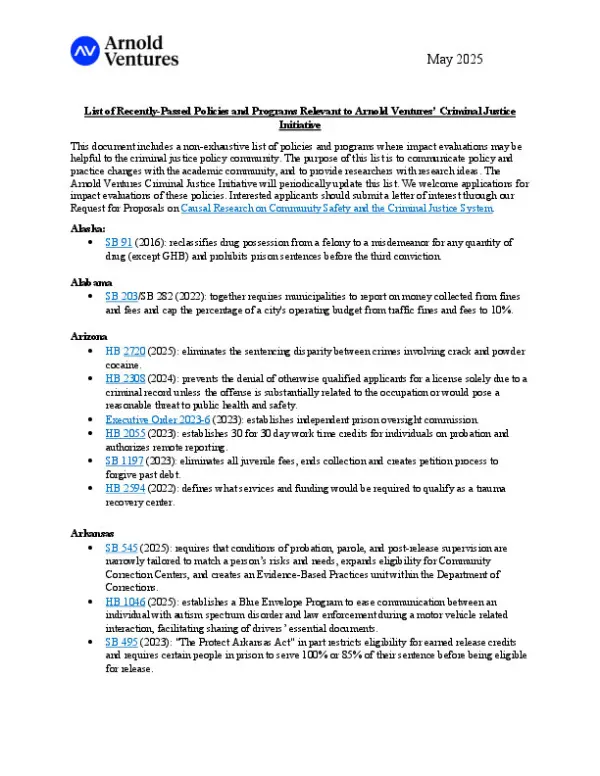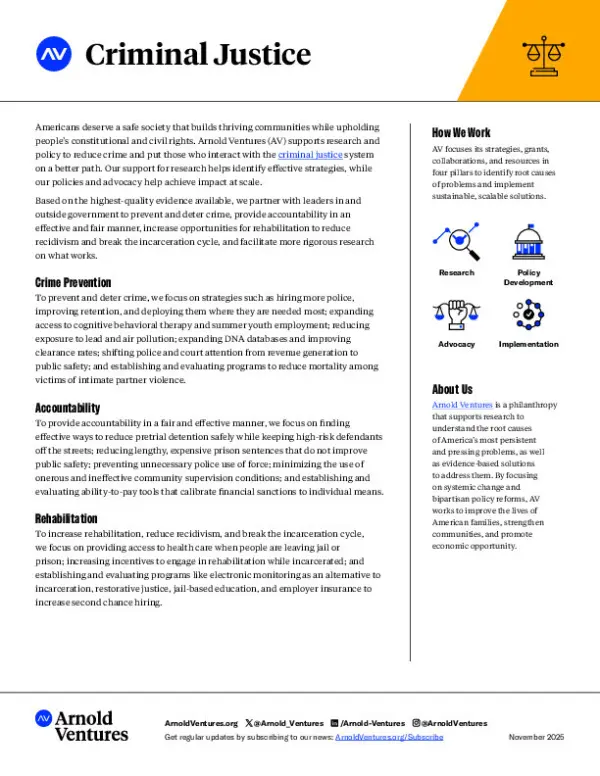Criminal Justice

Americans deserve a safe society that builds thriving communities while upholding people’s constitutional and civil rights.
The Criminal Justice team at Arnold Ventures supports research and policy to reduce crime and put those who interact with the criminal justice system on a better path. Our support for research helps identify effective strategies, while our policies and advocacy help achieve impact at scale.
Based on the highest quality evidence available, we partner with leaders in and outside government to prevent and deter crime, provide accountability in an effective and fair manner, increase opportunities to reduce recidivism and break the incarceration cycle, and facilitate more rigorous research on what works.
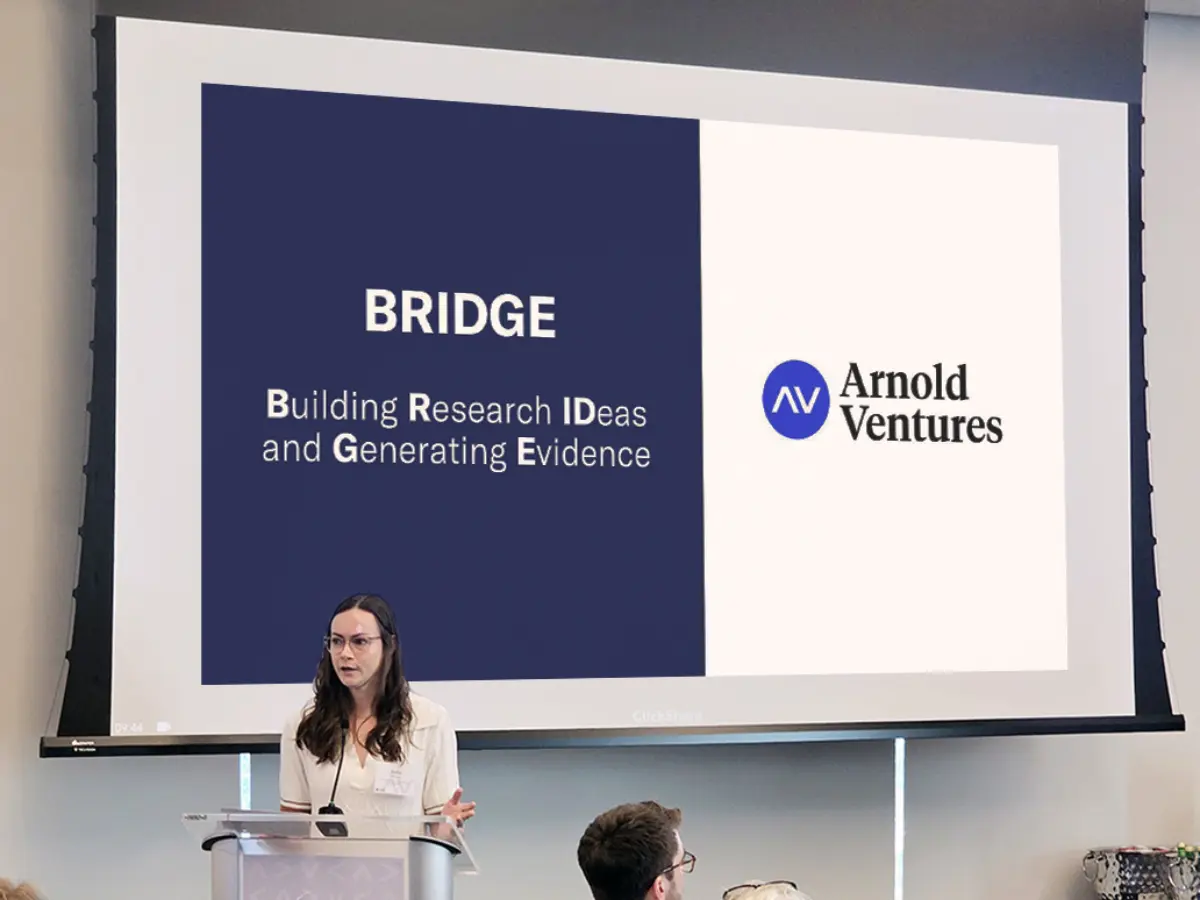
BRIDGE Days
Building Research Ideas and Generating Evidence (BRIDGE) Days are AV-hosted convenings that foster innovative dialogue and collaborative partnerships between criminal justice researchers and practitioners.
Learn MoreStories
See allIn the News
Resources
See allRequests for Proposals
Summaries of Research Grants
Find summaries of grants that have been funded by our Criminal Justice Research team. Each summary includes a description of the intervention being evaluated, research design, study team, grant term, and funding.
See the SummariesStay Informed About Criminal Justice
Never miss a story. Be the first to know about research, policy, and advocacy updates related to Criminal Justice by getting our newsletter delivered straight to your inbox.
Read and Subscribe








